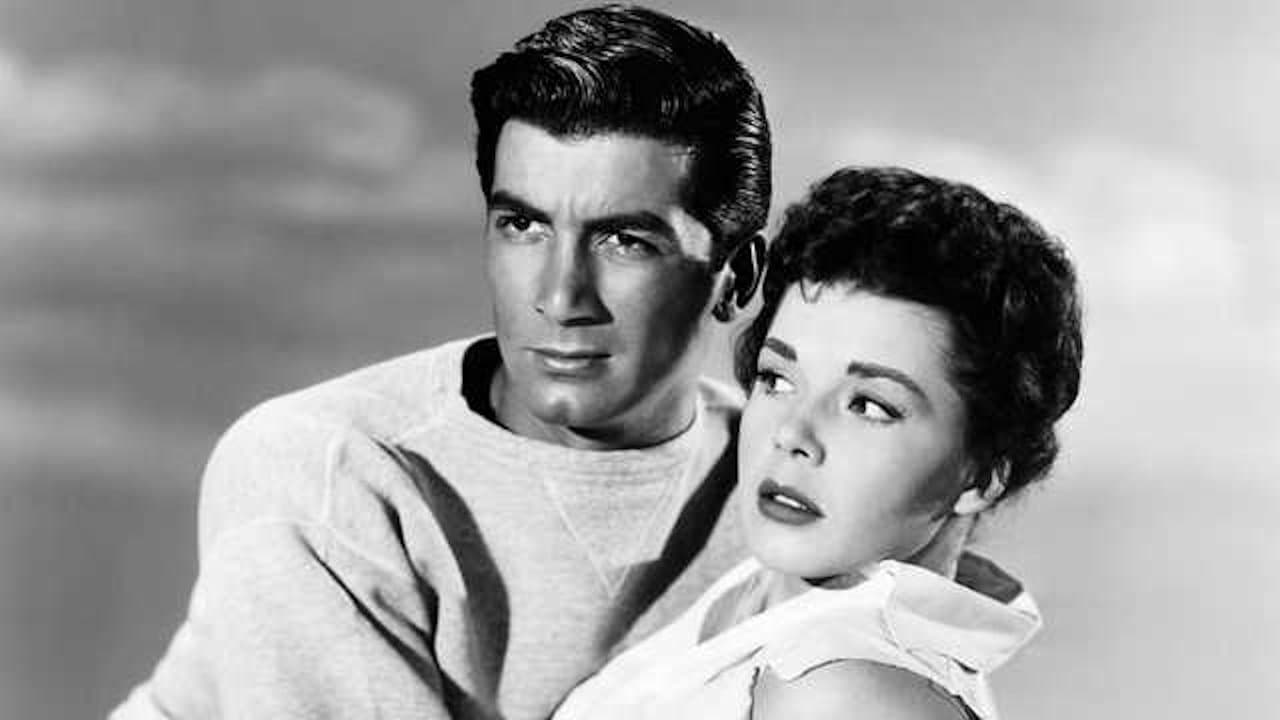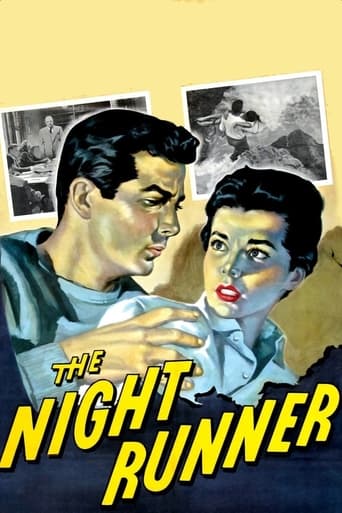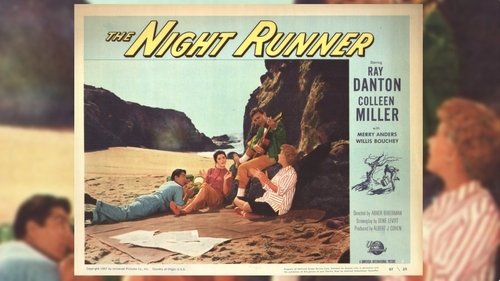


Lack of good storyline.
... View MoreGood films always raise compelling questions, whether the format is fiction or documentary fact.
... View MoreThe story, direction, characters, and writing/dialogue is akin to taking a tranquilizer shot to the neck, but everything else was so well done.
... View MoreA clunky actioner with a handful of cool moments.
... View MoreCopyright 1957 by Universal-International. No New York opening. U.S. release: February 1957. U.K. release: 13 October 1957. Australian release: 28 February 1957. 79 minutes. Cut to 73 minutes in the U.K.SYNOPSIS: Roy Turner is an inmate at a state mental hospital under treatment for schizophrenia. Because of overcrowding at the hospital, Turner is made an outpatient; as he is given his freedom by his psychiatric overseer, he is warned to avoid emotionally charged situations. After taking a bus south, Turner finds a motel and decides to remain there indefinitely because he is attracted to the nearby beach. He is also attracted to Susan Mayes, the daughter of the motel owner. When she reciprocates his interest, her father looks into Turner's past and discovers his history of mental illness. After ridiculing him, Mayes threatens to have Turner re-committed unless he leaves his daughter alone. The sudden stress imbalances Turner.COMMENT: Starts rather promisingly. Although the pace is slow-moving, the story idea has latent tension, the acting is competent and the location photography (by ace cameraman George Robinson) stylistically attractive. Unfortunately, the pace never quickens and the expected eruption of violence does not take place for a considerable time. When it does come, it is quite arrestingly staged, with a loud western soundtrack providing a dramatic counterpoint. But after this episode, the story takes more time to resolve than its interest warrants, with a feeble attempt to work up suspense with stained money, though the resolution is at least a little off-beat by Hollywood standards.Ray Danton gives a creditable account of Turner, and the rest of the cast is adequate. Production values are serviceable.
... View MoreA patient released prematurely from a mental hospital tries to find a new life at a roadside stopover. I can't imagine more than ten people saw this little oddity in a theatre. I expect the movie's risky downer material got made because it was so cheap to produce. Reviewer bmacy's right —the budget is rock bottom, a few shots of the Malibu coastline, an office interior, and that's pretty much it, along with a minimal cast. So why has the movie stayed with me over the years, instead of being just another forgotten cheapo. The film's not a minor gem—that would be too much of a stretch. Instead, I think Danton's performance manages a level that truly disturbs, especially with the tight script and noirish background. Catch the occasional little motion or grimace betraying Roy's (Danton) inner turmoil as he struggles with a society full of minor pressures. It's a carefully calibrated performance that shows how an emotive "more" can be expressed by a judicious "less". And since Roy is basically a likable guy, his plight becomes doubly affecting as he tries to blend into a normal life. That last lonely shot of him is, I think, one of the more disturbing to come out of the generally cheerful 1950's.On a different note—I suspect Hitchcock, also at Universal at the time, caught this minor production since the project bears certain key similarities to Psycho (1960). Consider, for example, the roadside motel, the disturbed personality, the brutal murder, along with the symbolic use of birds, in this case sea gulls. Nothing really hangs on the comparison, except maybe the notion that a widely acclaimed classic managed to grow out of an obscure seedbed. Anyway, this little oddity has its own peculiar virtues, so catch up with it if you can.
... View MoreThe course traversed by The Night Runner careens from the mildly impressive to the disappointing. On the one hand, there are a few strikingly shot night scenes, a tight story line, and an able performance by its handsome but less than mesmerizing star, Ray Danton (later to star as the `Aspirin Kid' in The Beat Generation and in The Rise and Fall of Legs Diamond). On the other, there's a budget of about $699, a forgettable supporting cast, and a self-sabotaging way of not following through on its strengths but settling for narrative clichés instead.Owing to economic pressures, Danton gains release, against the better judgement of his doctor, from the mental institution where he's been confined - there was a vague, violent incident in his past. But he's unequipped for the outside world. In Los Angeles, he bolts from a job interview when asked to fill in the holes in his resumé and starts to assault a man in the street he bumps into. Trying a geographic cure, he gets aboard a Greyhound, takes a liking to a little coastal town during a rest stop, and decides to stay.He books a room in an off-season motel where he raises suspicions in the owner (Willis Bouchey) but falls for his daughter (Colleen Miller). The salt air, a new job in the aerospace industry and the prospect of romance do wonders until Bouchey, having ferreted out the dark secret, locks Danton out of his room and bids him hit the road. Whereupon Danton kills him, making it look like a robbery, and carries on his courtship with the bereaved Miller as if nothing had happened. But when evidence that he played a part in the slaying starts surfacing (even though one character observes that `A lot of people spill nail polish on money'), his false façade of stability starts to topple....The man behind The Night Runner, Abner Biberman, was a minor actor (often playing Asian roles!) from the mid-1930s until he turned to directing in the mid-1950s. Frustratingly, he shows glimmers of talent, even sensitivity, but ultimately chooses a facile, melodramatic path (though Universal International Pictures may have forced his hand). The script is prescient about the too-early release from institutions of psychiatric patients not yet ready to cope with the stresses and responsibilities of daily living, an enlightened view underscored by Danton's largely restrained performance. But then the inexorable machinery of the suspense plot demands that he erupt as a psycho-killer. Still, the movie's end unmasks Danton as not quite a monster but rather a misfit with some sad insight into why the `normal' life he craves can never be his.
... View More